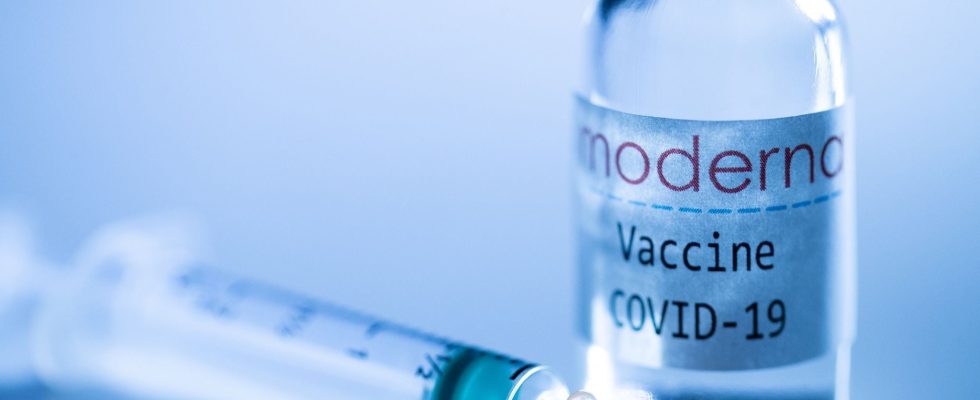This is the start of a long legal battle. The pharmaceutical laboratories Moderna and Pfizer BioNTech are clashing – notably in London – over authorship and the right to use the messenger RNA technology which was crucial in the development of their vaccines against Covid-19.
A trial opens in the English capital this Tuesday, April 23, during which the American Moderna accuses the opposing party of infringing two European patents linked to its vaccine against the coronavirus. The British High Court will study “the infringements of and the validity of patents EP 949 and EP 565, respectively”, according to a statement from a Moderna spokesperson received by AFP.
The hearings will begin at 10:30 a.m. and are expected to last until May 15. “Moderna is convinced of the scale and solidity of its “technology”, “protected by numerous patents”, further comments the American laboratory.
A second trial in May
The legal battle is not limited to this procedure. Indeed, a second trial will open on May 2, in which Pfizer and BioNTech challenge Moderna’s commitments during the pandemic not to pursue laboratories that use its vaccine technology in the fight against the pandemic. A Moderna spokesperson explained to AFP that the laboratory made this commitment at the height of the pandemic but amended it in March 2022.
Furthermore, Moderna had undertaken not to take legal action regarding the production of vaccines using its technology to fight the pandemic in low-income countries. But according to the American laboratory, the current disputes concern rich countries such as the United States or Europe. A procedure is also underway in Belgium, and Moderna initiated proceedings in August 2022 against Pfizer and BioNTech in the United States and Germany.
In a press release, a BioNTech spokesperson points out that Moderna unsuccessfully launched lawsuits in the United States, Ireland, Germany and the Netherlands.
BioNTech-Pfizer and Moderna were among the first with the British AstraZeneca to bring coronavirus vaccines to the market, which earned them billions of dollars. The two Americans and the German used cutting-edge messenger RNA technology, while the British opted for a more traditional immunization formula.
